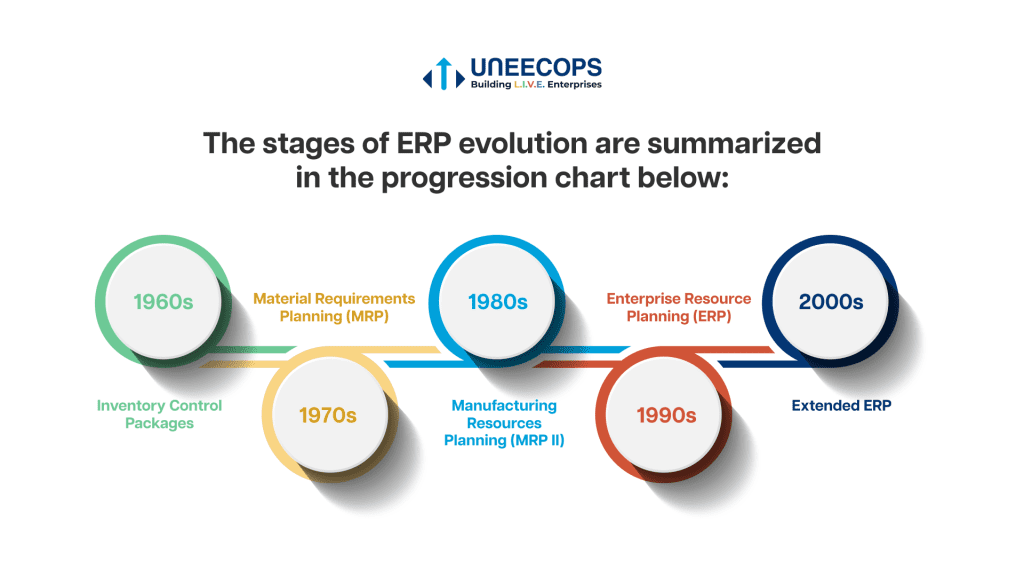Cloud Share Price
Welcome to the world of cloud share prices! In this article, we will delve into the fascinating realm of cloud computing and how it impacts the stock market. Cloud technologies have become an integral part of our daily lives, from storing photos and music to powering large-scale enterprises. Let’s explore how the performance of cloud share prices can provide valuable insights into the ever-evolving tech industry. So buckle up and get ready to dive into the world of cloud computing and stock market trends!
Overview of Cloud Share Price
Cloud share price refers to the current market value of stocks for companies that provide services related to cloud computing. Cloud computing has become an essential component of modern business operations, allowing companies to store, manage, and process data in a secure and efficient manner. As a result, the demand for cloud services has increased substantially in recent years, leading to an overall growth in cloud share prices.
Investors who are interested in cloud computing companies often track the performance of these stocks to assess the potential for returns on their investments. Cloud share prices are influenced by various factors, including the company’s financial performance, market trends, and overall economic conditions. As a result, the prices of cloud shares can fluctuate on a daily basis, making them a potentially lucrative but also volatile investment option.
One of the key factors that can impact cloud share prices is the financial performance of the company. Investors typically look at metrics such as revenue growth, profitability, and cash flow to determine the value of a company’s stock. Companies that are able to demonstrate strong financial performance are likely to see an increase in their share prices, as investors are more confident in the company’s ability to generate returns.
Market trends also play a significant role in determining cloud share prices. For example, if there is increased demand for cloud services due to a shift towards remote work or digital transformation, companies that provide these services are likely to see an uptick in their share prices. On the other hand, if there is a slowdown in the adoption of cloud computing technologies, share prices may decrease as investors become more cautious about the company’s future prospects.
Overall economic conditions can also impact cloud share prices, as broader market trends can influence investor sentiment and risk appetite. For example, during times of economic uncertainty or market volatility, investors may be more hesitant to invest in high-growth technology stocks such as cloud computing companies, leading to a decrease in share prices. Conversely, during times of economic growth and stability, cloud share prices may experience an uptrend as investors seek out opportunities for higher returns.
In conclusion, cloud share prices are a key indicator of the performance and value of companies that provide cloud computing services. Investors who are interested in this sector must stay informed about the various factors that can impact cloud share prices, including financial performance, market trends, and overall economic conditions. By understanding these factors and conducting thorough research, investors can make more informed decisions about investing in cloud computing stocks.
Factors Influencing Cloud Share Price
Cloud share prices are influenced by a variety of factors, both internal and external, that can affect the value of a company in the eyes of investors. Understanding these factors is crucial for investors looking to make informed decisions about buying or selling shares in cloud computing companies. Let’s explore some of the key factors that influence cloud share prices:
1. Company Performance:
One of the most significant factors influencing cloud share prices is the performance of the company itself. Investors closely monitor a company’s financial health, revenue growth, profitability, and market share to assess its potential for future growth. A company that consistently meets or exceeds its financial targets is likely to see its share price rise, while one that misses expectations may see its share price decline.
2. Market Trends:
Market trends play a crucial role in determining the share price of cloud computing companies. As technology evolves and consumer preferences shift, companies must adapt to stay competitive. Investors pay close attention to trends in cloud computing, such as the adoption of new technologies like artificial intelligence and the Internet of Things, as well as changes in consumer behavior and demand for cloud services. Companies that can effectively anticipate and respond to these trends are more likely to see their share prices increase.
Additionally, market trends in the broader economy can also impact cloud share prices. Factors such as interest rates, inflation, and geopolitical events can influence investor sentiment and market volatility, leading to fluctuations in share prices. Companies that are able to navigate these external factors and mitigate their impact on their business are better positioned to maintain stable share prices.
3. Competitive Landscape:
The competitive landscape in the cloud computing industry is fierce, with numerous companies vying for market share and dominance. Investors closely monitor the competitive positioning of cloud companies, assessing their ability to innovate, attract and retain customers, and differentiate themselves from their peers. Companies that can effectively differentiate themselves and maintain a competitive edge are more likely to see their share prices rise, while those that struggle to keep up with the competition may see their share prices decline.
4. Regulatory Environment:
The regulatory environment can also significantly impact cloud share prices. Changes in regulations related to data privacy, cybersecurity, and antitrust can create uncertainty for cloud companies, leading to fluctuations in share prices. Companies that are able to adapt to regulatory changes and demonstrate compliance with relevant laws and regulations are more likely to see their share prices stabilize, while those that face regulatory challenges may see their share prices decline.
Overall, cloud share prices are influenced by a combination of internal and external factors that can impact the performance and valuation of cloud computing companies. By staying informed about these factors and conducting thorough research, investors can make more informed decisions about buying and selling cloud shares.
Historical Performance of Cloud Share Price
Cloud share prices have experienced significant fluctuations over the years, with both highs and lows contributing to the overall performance of the market. The historical performance of cloud share prices can be analyzed by looking at trends, patterns, and key events that have influenced the market.
One important factor to consider when assessing the historical performance of cloud share prices is the impact of technological advancements. As cloud computing technology has evolved and become more sophisticated, it has had a direct impact on the performance of cloud share prices. For example, the introduction of new cloud computing services or the development of innovative software solutions can cause share prices to increase as investors anticipate future growth and profitability.
Another key aspect to consider when analyzing the historical performance of cloud share prices is the influence of market trends and economic conditions. During periods of economic uncertainty or market volatility, cloud share prices may experience sharp declines as investors seek safer investment options. On the other hand, during times of economic growth and stability, cloud share prices may rise as demand for cloud services increases.
Furthermore, the competitive landscape within the cloud computing industry can also have a significant impact on the performance of cloud share prices. As more companies enter the market and compete for market share, share prices may fluctuate based on investor sentiment and company performance. For example, if a new competitor emerges with a competitive edge or innovative technology, it could cause share prices of existing cloud companies to decrease as investors reevaluate their investment decisions.
In addition to technological advancements, market trends, and competitive pressures, regulatory changes and geopolitical events can also influence the historical performance of cloud share prices. Changes in government regulations or policies related to data security, privacy, and international trade can impact the operations and profitability of cloud companies, leading to fluctuations in share prices.
Overall, the historical performance of cloud share prices is influenced by a complex interplay of factors, including technological advancements, market trends, competitive pressures, regulatory changes, and geopolitical events. By understanding these factors and their impact on the market, investors can make more informed decisions about when to buy, sell, or hold cloud shares.
Future Outlook for Cloud Share Price
As we look ahead to the future of cloud share prices, there are several factors that could potentially impact their value. One key consideration is the continued adoption of cloud computing technology across industries. With more and more businesses relying on cloud services for data storage, processing, and access, the demand for cloud shares could continue to rise. This could lead to an increase in share prices as investors see the potential for continued growth in the industry.
Another factor to consider is the level of competition in the cloud computing market. As more companies enter the space and existing players continue to expand their offerings, there could be increased pressure on cloud share prices. However, if a company can differentiate itself through innovative products or superior customer service, it could see its share price rise above the competition.
Regulatory changes could also have an impact on cloud share prices in the future. As governments around the world look to regulate data privacy and security more closely, companies operating in the cloud space may face increased scrutiny. This could lead to higher compliance costs and potentially lower profitability, which could in turn impact share prices. Investors will need to carefully monitor any regulatory developments that could affect the cloud computing industry.
Additionally, technological advancements in cloud computing could drive future share price growth. As companies continue to invest in research and development to improve their cloud services, they may be able to offer more advanced features and capabilities to their customers. This could attract new clients and help to boost revenues, leading to higher share prices for companies in the cloud computing sector.
Overall, the future outlook for cloud share prices is uncertain, as there are a variety of factors that could influence their value. Investors will need to stay informed about industry developments, regulatory changes, and technological advancements to make informed decisions about their cloud investments. While there may be risks involved, the potential for growth in the cloud computing sector could make cloud shares an attractive option for investors looking to diversify their portfolios.
Strategies for Investing in Cloud Share
Investing in cloud share can be a lucrative venture for those who understand the market and are willing to take calculated risks. There are several strategies that investors can use to maximize their returns and minimize their losses when investing in cloud share.
1. Diversify Your Portfolio:
One of the key strategies for investing in cloud share is to diversify your portfolio. By spreading your investments across different companies in the cloud computing sector, you can reduce the risk of losing all your money if one company underperforms. Diversification can help you capitalize on the growth potential of the entire sector, rather than relying on the success of one particular company.
2. Do Your Research:
Before investing in cloud share, it’s important to do your research on the companies you’re considering. Look at their financial performance, market position, and growth prospects. Consider factors such as revenue growth, profitability, competitive advantage, and management team. By conducting thorough research, you can make informed investment decisions that are more likely to yield positive returns.
3. Stay Informed:
The cloud computing sector is constantly evolving, with new technologies and trends emerging all the time. To stay ahead of the curve, it’s important to stay informed about the latest developments in the industry. Follow market news, read analyst reports, and attend industry conferences to gain insights that can help you make better investment decisions.
4. Consider Long-Term Growth Potential:
When investing in cloud share, it’s important to consider the long-term growth potential of the companies you’re investing in. Look for companies that are well-positioned to capitalize on the growing demand for cloud services, such as software as a service (SaaS), infrastructure as a service (IaaS), and platform as a service (PaaS). Evaluate their scalability, competitive advantages, and market opportunities to assess their long-term growth prospects.
5. Take Advantage of Dollar-Cost Averaging:
Dollar-cost averaging is a strategy where you invest a fixed amount of money in cloud share at regular intervals, regardless of the share price. This approach can help smooth out the impact of market volatility and reduce the risk of making poor investment decisions based on short-term fluctuations in share price. By consistently investing over time, you can take advantage of market downturns to buy more shares at lower prices and benefit from potential long-term gains.







